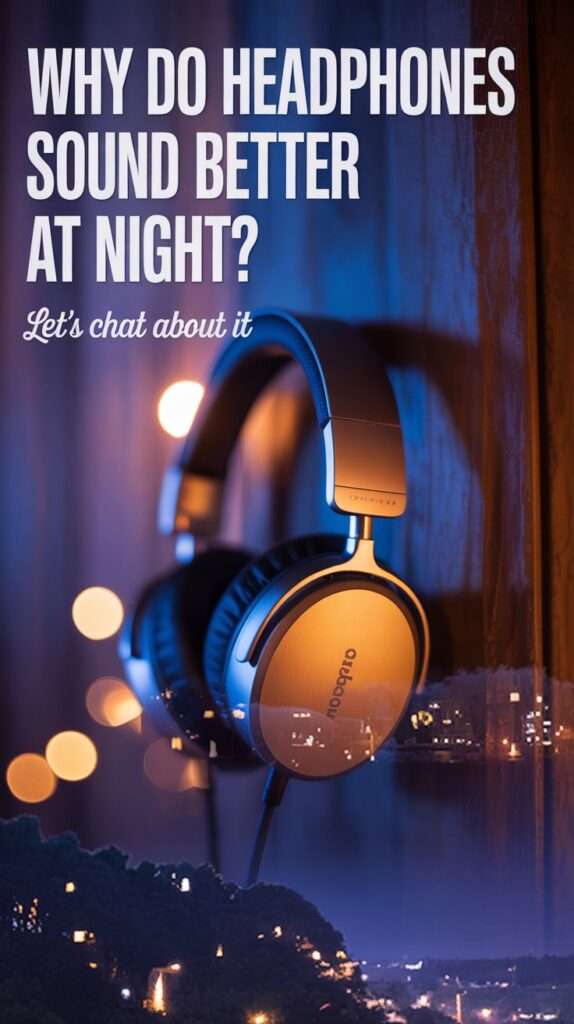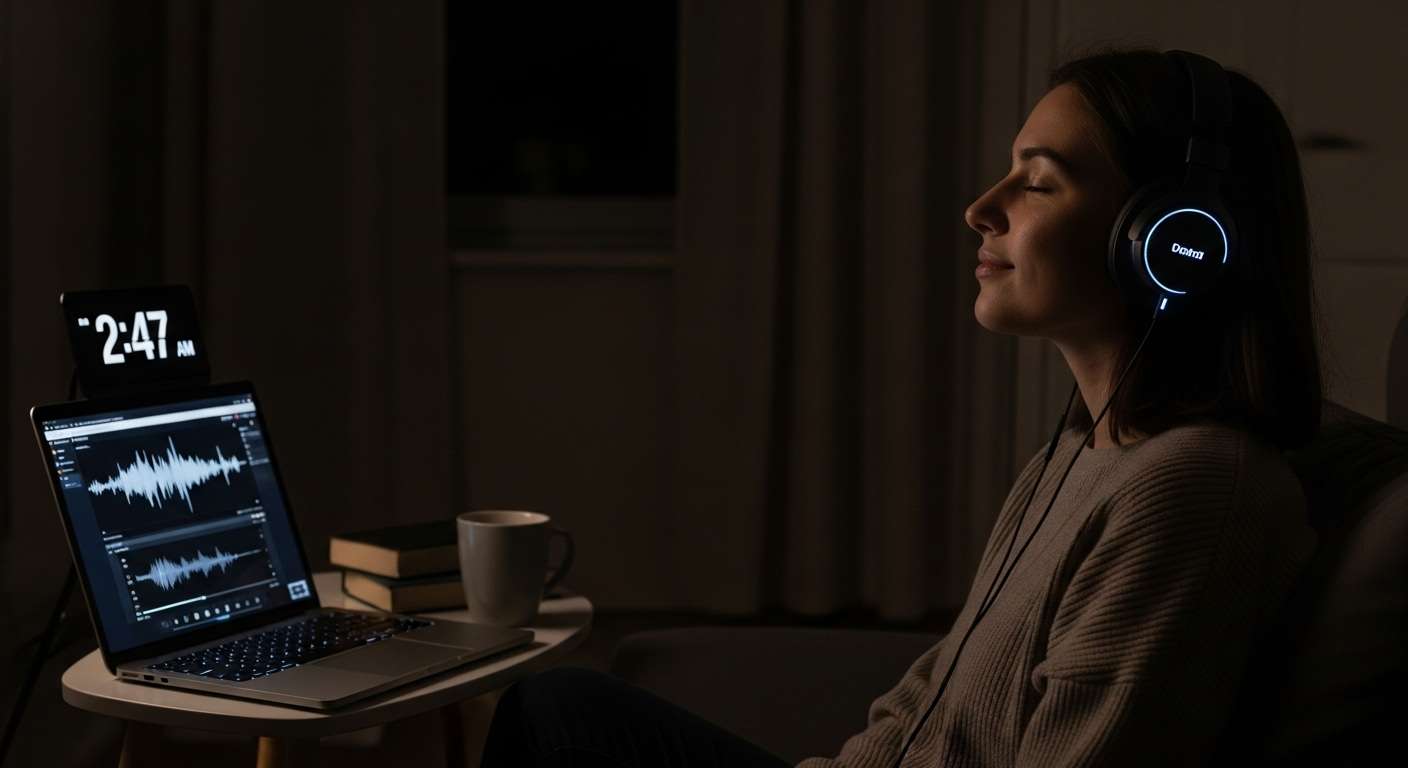Ever noticed how your favorite tunes seem to magically sound better when you’re chilling with your headphones late at night? You’re not imagining things there’s actually some pretty cool reasons behind this.
Whether you’re winding down, powering through a late-night study session, or just vibing solo, the audio experience somehow feels richer, clearer, and way more immersive in the dark hours. Let’s unpack why headphones sound better at night and trust me, it’s more than just your mood.
1. The Quiet Magic of Nighttime Listening
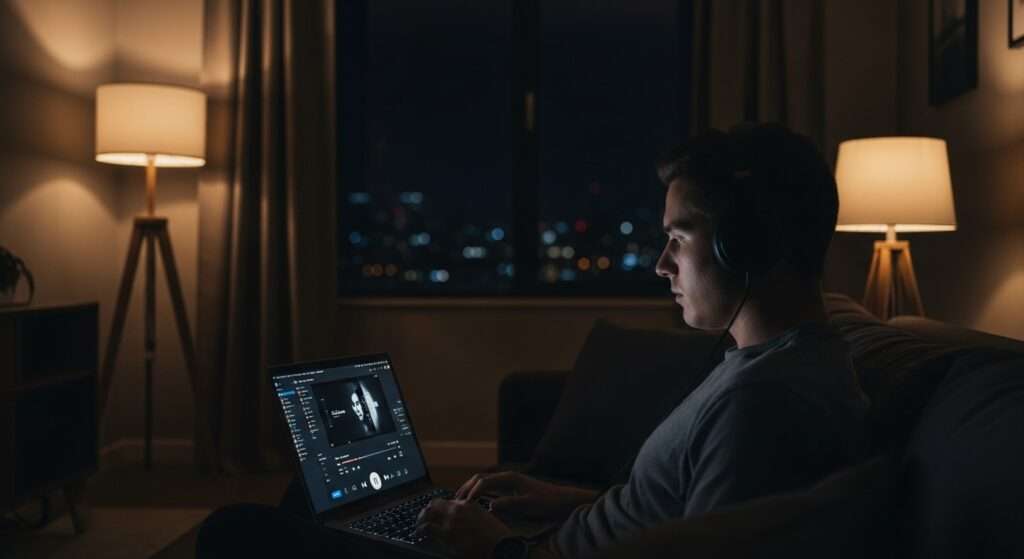
Less Noise, More Music
First off, ambient noise drops dramatically at night. No roaring traffic, no buzzing construction, fewer random sounds demanding your attention. When you slap on those cans in the daytime, your brain’s busy filtering out a loud symphony of distractions. But night? The world quiets down like someone hit the mute button.
This reduced noise level means your ears can pick up subtle details and nuances in music that fade into the background during the day. It’s like shifting from a crowded café to a cozy, silent room — suddenly every sound has space to breathe and shine. So yeah, your headphones don’t actually get better, but your environment sets the stage for better sound.
A Sensory Shutdown (In a Good Way)
Imagine trying to enjoy dessert while someone’s shouting across the room, flashing lights in your eyes, and your phone won’t stop buzzing. Impossible, right? That’s your sensory input on overdrive during the day.
At night, your senses chill out because there are fewer visual distractions, smells, or other sensory annoyances yelling for your attention.
This sensory calm lets your brain zero in on the auditory world. So when you put on your headphones, your ears become the star players, unpacking the layers of sound with laser focus. It’s a psychological win-and honestly, probably why I never use headphones in bright office spaces just too much going on.
2. The Science Behind the Sonic Sweet Spot
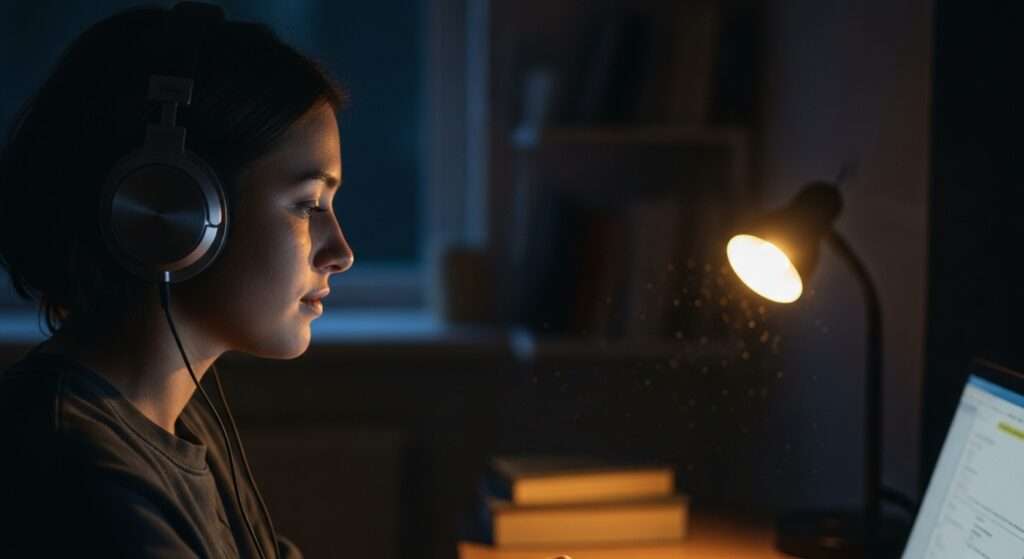
The Magic of Melatonin
Here’s a fun fact you probably didn’t expect: melatonin, the hormone that helps you fall asleep, might be playing DJ.
As melatonin levels rise in the evening, this hormone not only signals rest but could also enhance how your brain processes sound. Researchers think melatonin might make sounds seem richer, deeper, and more immersive. So when you’re listening at night, your brain isn’t just relaxed, it might actually be wired to enjoy sound more fully. How’s that for multitasking?
Cleaner Power = Cleaner Sound?
Okay, this one sounds kinda out there, but stick with me. Audio buffs swear that audio equipment performs better at night due to cleaner electrical power. Think about it: during the day, homes and businesses crank up appliances, ACs, and machines, causing tiny fluctuations or noise in the electric supply. At night, fewer devices are running, which means a more stable and cleaner power source for your gear.
If you’re using a quality headphone amplifier or DAC (Digital-to-Analog Converter), this cleaner power can translate to less interference and a smoother sound. I’m not saying your morning coffee machine is sabotaging your listening pleasure, but maybe avoid using it mid-listen!
3. Mood and Mindset: It’s Not Just Your Ears
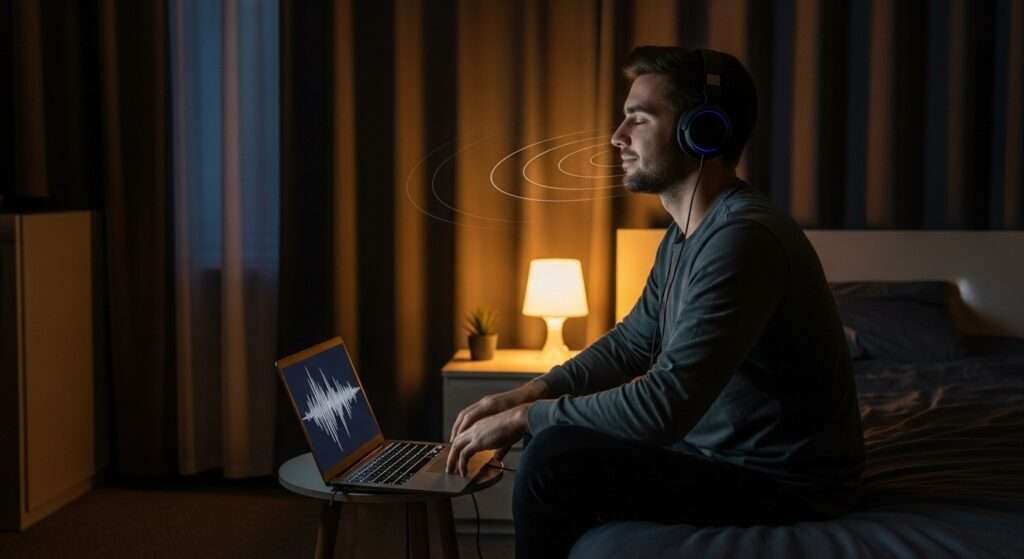
Relaxation Makes Everything Better
Let’s be honest you’re way more relaxed at night. No meetings looming, no emails pinging, just you and the music. This relaxed state can lower your ear fatigue and boost concentration, making the music sound better simply because your brain is primed to enjoy it.
Ever cranked tunes at 3 AM and felt like you were hearing every instrument kick and every breath the singer took? That focus isn’t magic; it’s your brain soaking up the music with less stress and more openness. So yeah, headphones sound better at night partly because you sound better mentally. No stress, no distractions a perfect combo.
Psychological Factors and Intimacy
There’s also this cool psychological twist: night listening creates a sense of intimacy and privacy. You’re tucked away from the chaos, and music becomes this exclusive, personal experience.
Your brain associates night with special moments think late-night parties or chill hangouts so it’s wired to enjoy music more. We’re not just hearing sound; we’re feeling stories, emotions, and vibes deeper because night unlocks those emotional doors.
4. Technical Stuff: Air Pressure and Sound Travel
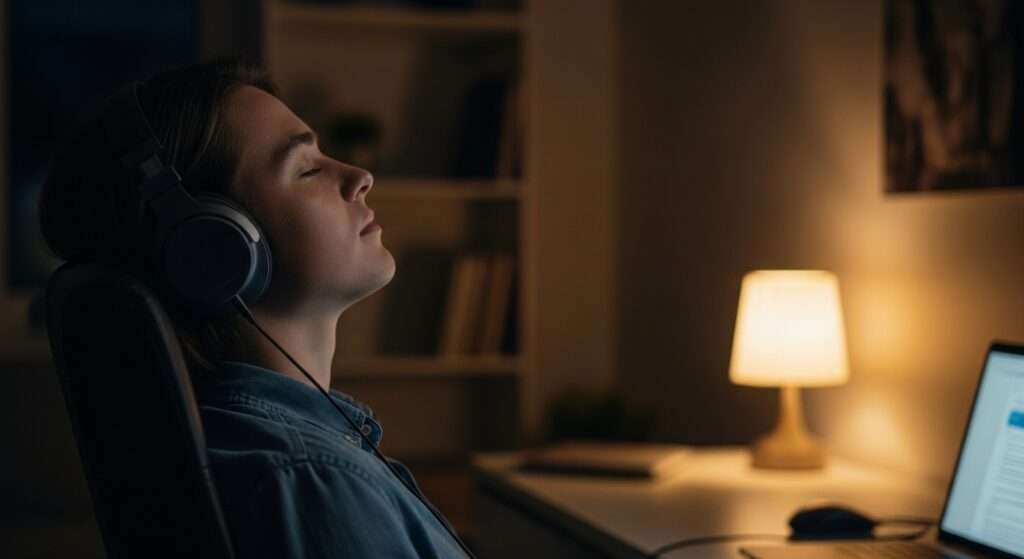
Nighttime Air Quality Changes
Here’s a little audio nerd trivia: air pressure and temperature change at night, which affects how sound waves travel. Cooler, denser air can carry sound waves differently compared to hot daytime air. This factor can subtly influence how you perceive sound, possibly making the music from your headphones feel fuller or clearer.
Would you notice it if it wasn’t for the other factors? Probably not. But it’s another piece of the puzzle explaining why that song hitting you in the feels at midnight won’t quite hit the same at noon.
Why Does This Matter to You?
If your headphones sound better at night, it’s not just you losing it or getting overly sentimental. It’s science, environment, mindset, and a sprinkle of magic all joining forces. Knowing why can actually make you rethink the best time to really enjoy your playlists or podcasts.
Pro tip: If you want to test this yourself, pick a quiet day, and listen to the same track at noon and midnight. Use the same headphones and volume. Chances are, you’ll find the night version way more satisfying. FYI, it’s not your imagination it’s legit.
5.Quick Takeaways: Why Night Rocks for Headphone Listening
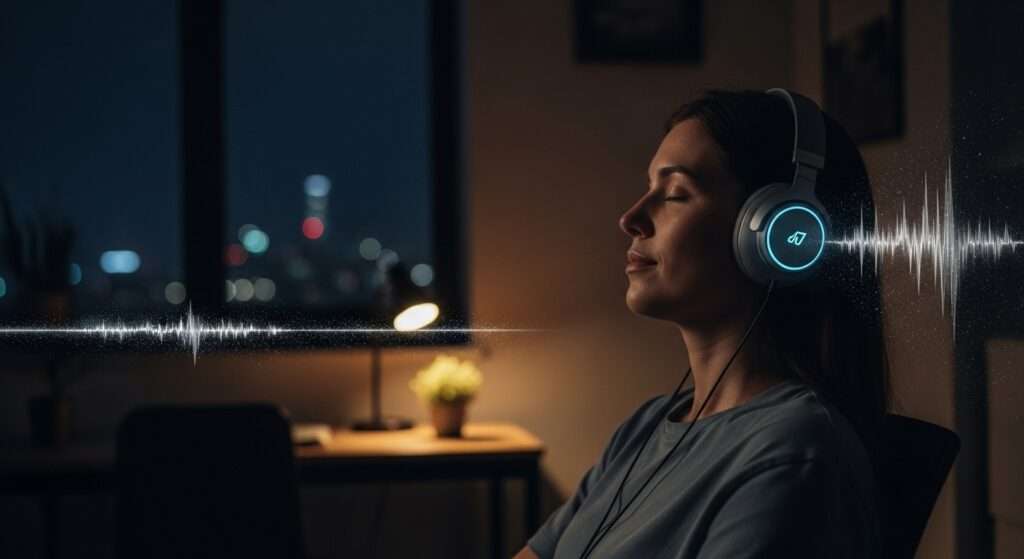
- Ambient noise drops significantly at night, allowing your ears to catch more details.
- Your senses are less overloaded, making hearing the music the main focus.
- The hormone melatonin may enhance sound perception by boosting auditory brain function.
- Cleaner power to your audio gear at night reduces electrical noise and interference.
- You’re more relaxed and focused, boosting your listening experience.
- Psychological intimacy makes music feel more emotional and personal.
- Changes in air pressure and temperature subtly affect sound waves at night.
Conclusion
So next time your headphones suddenly sound like a luxury concert in your ears at night, now you know why. It’s not a coincidence or wild imagination it’s a perfect storm of physics, biology, psychology, and a touch of electric alchemy.
In my experience, those night listening sessions aren’t just better sounding; they feel like little mental vacations. Isn’t it funny how something as simple as the time of day can transform your music from background noise to an emotional journey?
So grab your favorite headphones, dim the lights, and let the night’s calm elevate your sound. Trust me, once you experience how headphones sound better at night, you’ll never want to hit play during the noisy daylight hours again.
